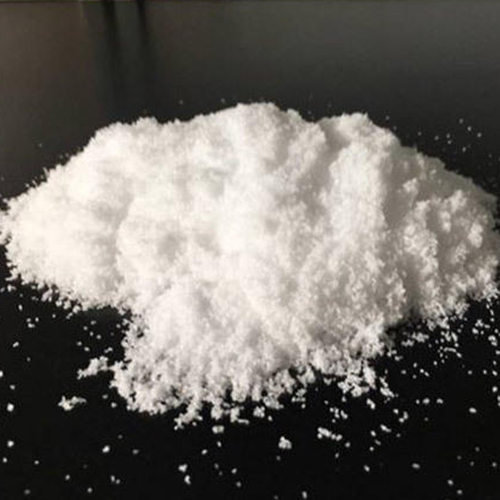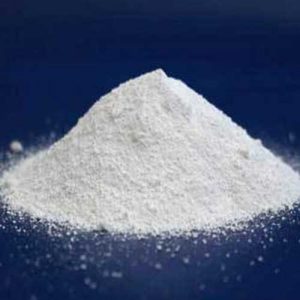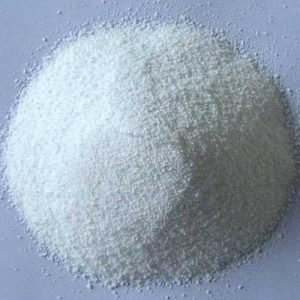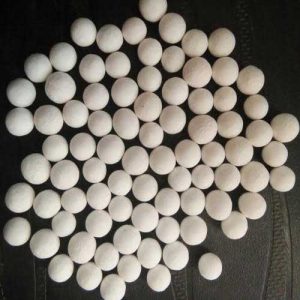- Have any questions?
- 91-22-23726950
- 91-22-23774610

Potassium Bromide
May 10, 2019
Potassium Chromate
May 10, 2019Potassium Chloride
Muby Chemicals established in the year 1976, is pioneer in Manufacturing Chemicals for Oil and Gas Exploration, Hydraulic Fracturing (Fracking) and coiled tube Chemicals.Our advanced chemistry leading to an innovative and high-performance product range is coupled with effective on and off site management services.
We are manufacturer of Specialty chemicals, Pharmaceutical Excipients, Fragrance & Flavorchemicals in India, which are of IP, BP, USP, Ph. Eur., FCC or Food Grade, ACS, AR or Analytical Reagent Grade, LR or Laboratory Reagent Grade, Pure and Technical Grades of various chemicals.
Potassium Chloride Technical Grade
| Specification | Technical |
| KCl Dry Basis Assay (DBA) | 98% min KCl Potassium Chloride |
| K2O | 60% min |
| Iron | 100 ppm |
| Matter insoluble in water | 0.1% max |
| Moisture % by Wt. Max. | 1% |
Potassium Chloride Pure used as a Potassium source, in electroplating, etc.
| Specification | Our Guaranteed |
| Percent by wt. | 99% (KCl) Potassium Chloride |
| Iron | 10 ppm |
| Sodium Chloride | 1% |
| Matter insoluble in water | 0.05% |
| Sulphate | 0.05% |
| Heavy metals as Lead | 5 ppm |
| Hydroxides | .01% |
| Calcium | 0.02% |
| Magnesium | 0.05% |
| Moisture % by Wt. Max. | 1% |
INDIAN PHARMACOPOEIA
POTASSIUM CHLORIDE IP
(KCl) MOLECULAR WEIGHT – __.__
| Particulars | Potassium Chloride IP Grade |
| Dry Basis Assay (KCl) | 99.0% Potassium Chloride |
| Description | White, crystalline powder, odorless. |
| Solubility | Freely soluble in water; sparingly soluble in ethanol (95%). |
| Matter Insoluble in Water | Clear & colorless solution (10% KCl w/w). |
| Acidity or Alkalinity | Passes the Test |
| Barium | Passes the Test |
| Arsenic | 1 ppm max. |
| Iron | 20 ppm max. |
| Calcium & Magnesium | Passes the Test |
| Sulphate | 300 ppm max. |
| Heavy Metals | 10 ppm max. |
| Bromide | 0.1% |
| Iodide | Passes the Test |
| Loss on Drying | 1.0% max. |
| Packing | In 50 Kgs. HDPE bags with double HMHDP liners or as required. |
We offer Potassium Chloride IP Potassium Chloride BP Potassium Chloride USP and Potassium Chloride Ph. Eur. from a world class FDA approved, ISO-9001-2008 Certified facility.
The majority of this salt KCl produced is used for making fertilizer, since the growth of many plants is limited by their potassium intake. As a chemical feedstock KCl is used for the manufacture of potassium hydroxide and potassium metal. KCl is also used in medicine, scientific applications, food processing, as a sodium-free substitute for table salt (sodium chloride), and in judicial execution through lethal injection. KCl is sometimes used in water as a completion fluid in oil and gas operations. It is also used as an alternative to sodium chloride in household water softener units. It is useful as a beta radiation source for calibration of radiation monitoring equipment because natural potassium contains 0.0118% of the isotope 40K. It is also used in Dasani water. It was once used as a fire extinguishing agent. It can be used as a salt substitute for food, but due to its weak, bitter, un-salty flavor, it is usually mixed with regular salt (sodium chloride), for this purpose to improve the taste (for example, in Morton Light Salt. It is used in oil drilling fluid, muds and Chemicals.
Potassium chloride (occurs naturally as sylvite, and it can be extracted from sylvinite. It is also extracted from salt water and can be manufactured by crystallization from solution, flotation or electrostatic separation from suitable minerals. It is a by-product of the making of nitric acid from potassium nitrate and hydrochloric acid. It is also commonly known as Muriate of Potash MOP. Potash varies in color from pink or red to white depending on the mining and recovery process used. White potash, sometimes referred to as soluble potash, is usually higher in analysis and is used primarily for making liquid starter fertilizers.
It was once used as a fire extinguishing agent, used in portable and wheeled fire extinguishers. Known as Super-K dry chemical, it was more effective than sodium bicarbonate-based dry chemicals and was compatible with protein foam. This agent fell out of favor with the introduction of potassium bicarbonate (Purple-K) dry chemical in the late 60s, which was much less corrosive and more effective. Rated for B and C fires.
It is also an optical crystal with a wide transmission range from 210 nm to 20 µm. It was formerly often used in the infrared spectrum range, and still is from time to time. While cheap, KCl crystal is hygroscopic. This limits its application to protected environments or short term uses such as prototyping. Exposed to free air KCl optics will “rot”. Today, much tougher crystals like ZnSe have replaced it for IR spectral range applications.
It has also been used to create heat packs which employ exothermic chemical reactions, but these are no longer being created due to cheaper and more efficient methods such as the oxidation of metals (‘Hot Hands’, one time use products) or the crystallization of sodium acetate (multiple use products).
A very bulk use of Potassium chloride is in mines and Oil Drilling mud and chemicals.
Potassium is vital in the human body and oral KCl is the common means to replenish it, although it can also be diluted and given intravenously (of course, in concentrations much lower than those used in executions). It can be used as a salt substitute for food, but due to its weak, bitter, un-salty flavor, it is usually mixed with regular salt (sodium chloride), for this purpose to improve the taste (for example, in Morton Light Salt. Medically it is used in the treatment of hypokalemia and associated conditions, for digitalis poisoning, and as an electrolyte replenisher.
We as Potassium chloride manufacturer offer Technical, Pure, IP, BP USP FCC grades of the product. Among other Potassium salts we can offer Mono Potassium Phosphate, Di Potassium Phosphate, Tri Potassium Phosphate, Potassium Sulphate or Potassium Acetate or Potassium Nitrate. We do not offer Potassium Muriate or Potassium MOP-fertilizer.




